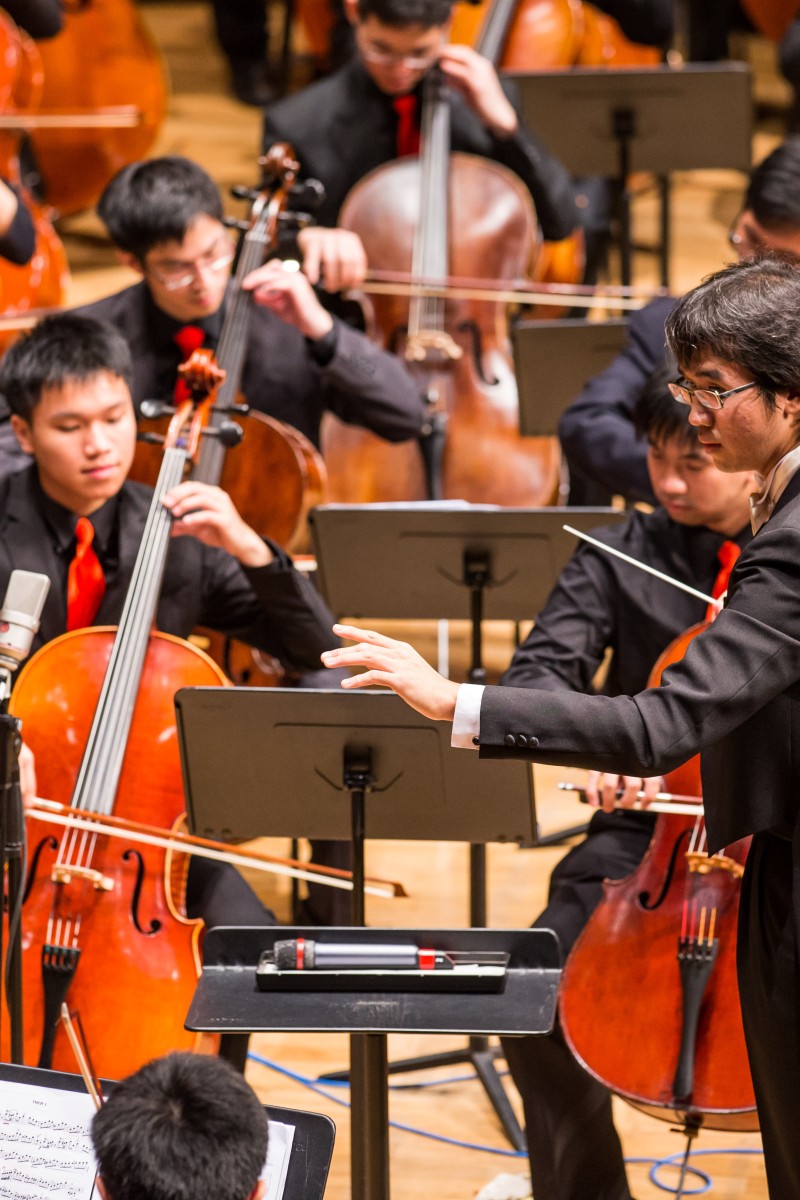
How is music practice similar to exam prep? It's not, says HK Festival Orchestra conductor
Mark Hui tells Young Post about how the art continues to inspire him
 Mark Hui leads the Hong Kong Festival Orchestra.
Mark Hui leads the Hong Kong Festival Orchestra.Conductor Mark Hui Wing-chun has music in his blood. He credits his father, a music teacher, with getting him started on the piano, but according to family lore, his destiny in music may have started earlier. "My mother told me about how I started kicking in the womb at a performance of the 1812 Overture. Maybe these things are just fated."
Hui's musical destiny was guided by a simple love and passion for the art - not by parental demands.
"My father encouraged me to try music. I was absolutely not pressured into it," he explains.
This freedom to explore music on his own terms led him to develop talents in other instruments. "I started on the piano at three and a half, and switched to the violin at six," says Hui. "While the piano is a good place to start learning music, I like the violin for its grace and elegance."
Whichever instrument a musician focuses on, Hui believes that practice is the key to success. "You either move forward or fall back. It can be hard to keep playing every day, but do it, even if it's only for 15 minutes," he advises. "The act of practising every day can instil discipline and shape one's personality."
Many students associate daily practice with the rote learning they experience in exam preparation, but Hui says this doesn't have to be the case. "Listen to music. To stay inspired, reading and listening to music is far better than just drilling. With the internet there are no difficulties finding good music to listen to."
Of course, with all the music you can find online, it's difficult to know where to begin. So Hui suggests phases of learning and listening. "Start by listening to the greats - the most famous [performers]. After that, you need to do more than just copy what other people do - you need to start thinking about why they do it. Then you can interpret old music in a new way."
Classical works have been performed for hundreds of years, but good musicians will still find a way to surprise us.
"As a classically trained musician, hearing new ways of playing creates a lot of impact," Hui says. "I remember hearing Mozart's Piano Concerto in C Minor performed by Mikhail Pletnev and the Russian National Orchestra. It was dark, mellow and reserved. I never heard it that way before. That's what a musician needs, to go deeper and think about music. Why is someone playing it that way?"
Working with the Hong Kong Festival Orchestra, Hui is trying to make music more accessible for people by using flash mobs and other performances. It's important to get more people interested, he says, because Hong Kong can be frustrating for musicians. "It's a complex problem. The government has the West Kowloon Cultural Centre, but it's too commercialised. The [Hong Kong Philharmonic Orchestra] had that controversy about a lack of local composers and soloists."
In the end, musicians can't rely on the government or trends - they need to find their own passion to keep them going. Quoting Steve Jobs and filmmaker Stephen Chow Sing-chi, Hui jokes: "You have to stay hungry and keep your original passion and dreams. A person without dreams is no different from a salted fish.
"Stay inspired. Listen to more music," Hui says with a smile. "It's a little nerdy, but a musician should be sensitive to the world of sound - all sorts of sound. It's an attitude."
For more information, visit Hong Kong Festival Orchestra.
